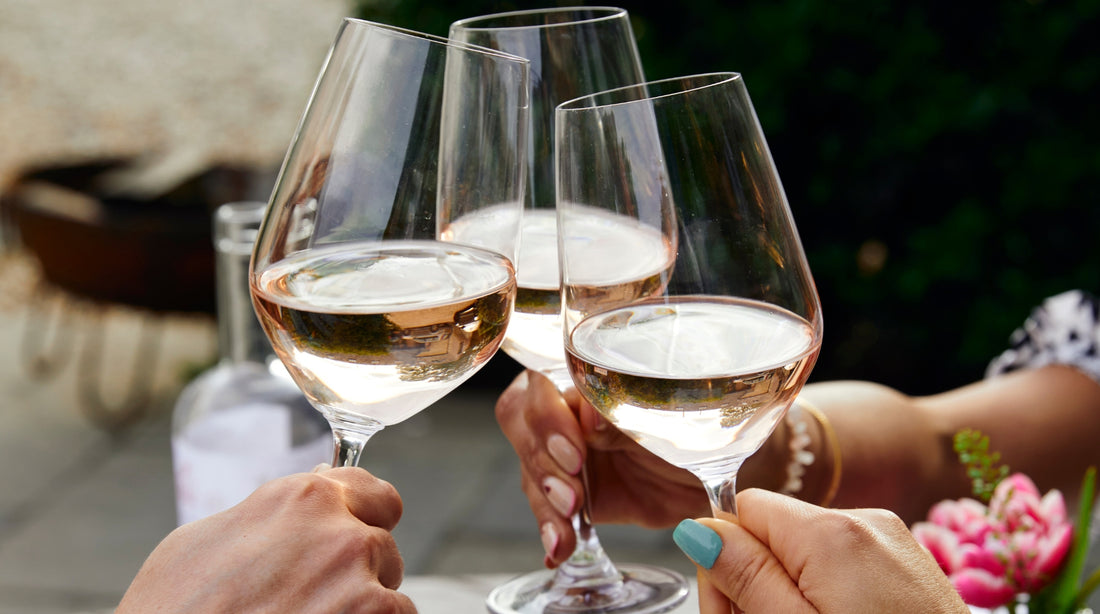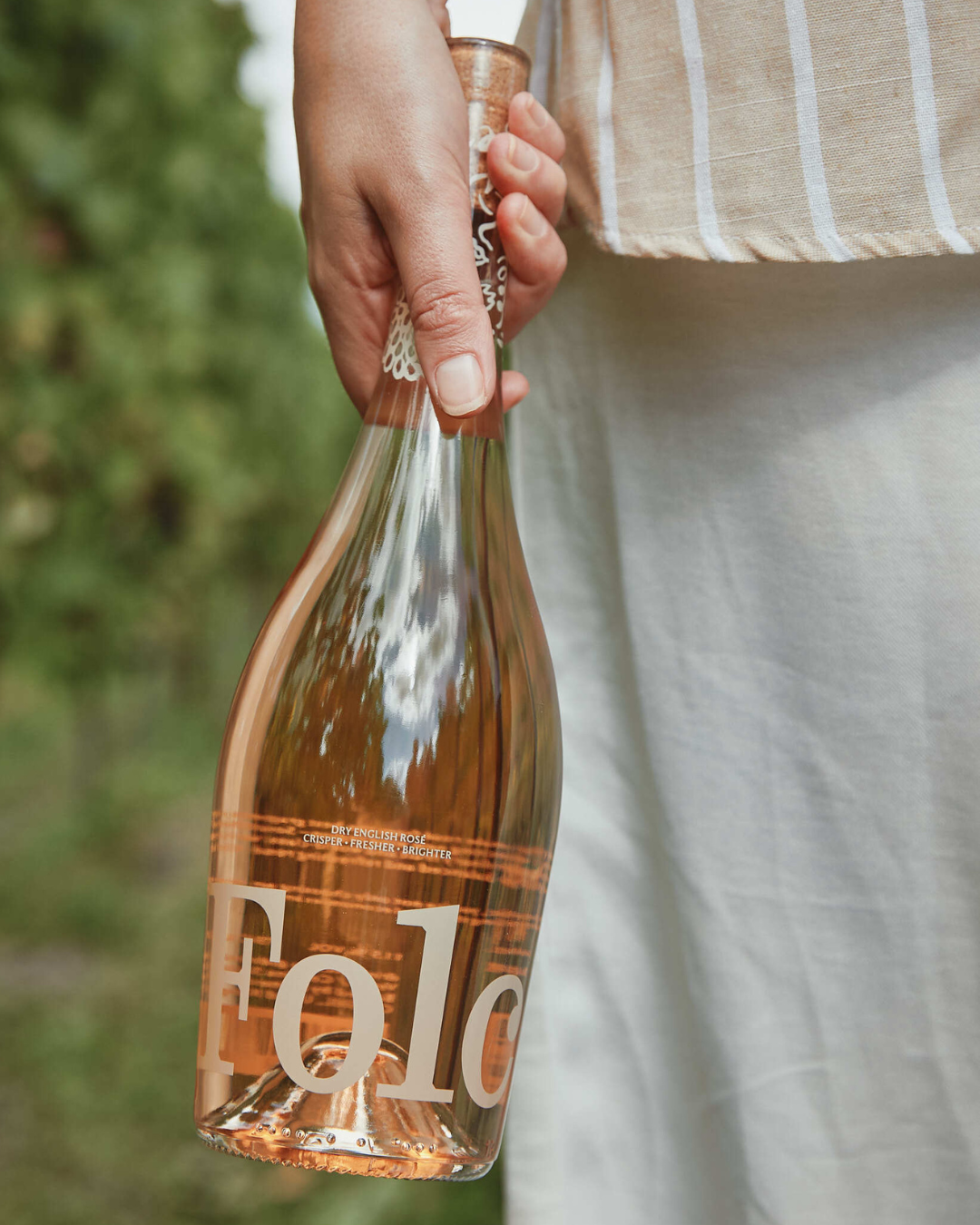
English wine - what is it and is it any good?
Picture rolling hills filled with vines, tasting tours leading from cavernous rooms filled with tanks and aged oak barrels to an outdoor picnic, and the clinking of glasses filled with wine. You’re probably imagining Provence, Tuscany or Napa Valley, but did you think of England?
English wine is booming (see our blog on the English wine movement), and folc is at the forefront of this in the rosé market, but what makes a wine ‘English’ and is it any good?
For a producer to use the term ‘English wine’, a wine needs to be made from grapes grown in England. A producer can’t buy grapes from other winemaking countries where it may be easier to grow grapes, say France, bottle it in England and still call it ‘English wine’. These grapes need to weather the storm in our ever-changing climate on English soil and be produced into wine in England. The reason for this, is because the word ‘English’ is a protected designation of origin and is currently the top category for wine in the UK. Think of it as the 5 stars of hotels, it undergoes two tests when applying for this term to ensure that the wine satisfies a high level of criteria to independently assess the quality of the wine.
If you see the term ‘English Regional Wine’ or ‘Wine of England’ it will fall within one of the lower categories of classification, which isn’t to say the wine isn’t necessarily as good, but it may not have been tested to the same extent as an English wine and not all the grapes used to produce the wine need to come from England*. 'British wine' is made using grapes not grown in England but overseas, and the wine is fermented and bottled in England. A cheeky way to wave the union jack but with a much lower price tag.
Putting the technicalities to one side, is English wine any good? You may have tried a glass of sparkling wine at a friend’s house, or wedding, and been pleasantly surprised with its high acidity, fresh fruit aromas and biscuity, brioche rounded taste. You may have even mistaken it for Champagne, which is something you have in common with many a judging panel in recent years who have ranked English sparkling wine higher than our French friends.
What about still English wines though? Surely we can’t grow grapes to the required ripeness you would need to produce a good quality still wine in our weather. We may not have been able to in the past, but we can, and we most definitely are, as of recent years. Global warming is not a positive thing, it has catastrophic consequences to our environment and our future if we continue living the way we do, but our temperatures are rising, and with that comes the ability to ripen grapes as far north in the world as our beautiful isle whilst offsetting our carbon footprint by purchasing locally grown and produced wine. Not to focus too much on the weather though as we still have our fair share of downpours, our soil and expert viticulturists and winemakers go a long way to aiding these grapes to grow successfully and then making an award-winning wine from them.
Let’s take folc as an example. We scored an average of 88 points in 3 independent wine awards last year, compared with an average of 85-87 points for much larger, well-known Provencal rosé wines which you would see in your supermarkets. From an expert’s point of view, this solidifies its quality amongst the go-to wines from Europe. For those of you who enjoy wine as a lesser pro, we have received countless reviews and feedback from customers that the wine is just as good, if not better, than other non-English wines, quoting one customer, Anna, "Folc is by far the best rosé i've ever tried and the 2021 vintage is just incredible. We celebrated a family birthday recently and all our guests loved this wine. We will never buy another brand!"
Only you can tell if you think English wine is worth the buzz, so get pouring and we’ll raise a glass of folc to your English wine journey together.
*Note English Regional Wines can only use grapes from England, Scotland, Wales or N.Ireland. No EU grapes can be used.
